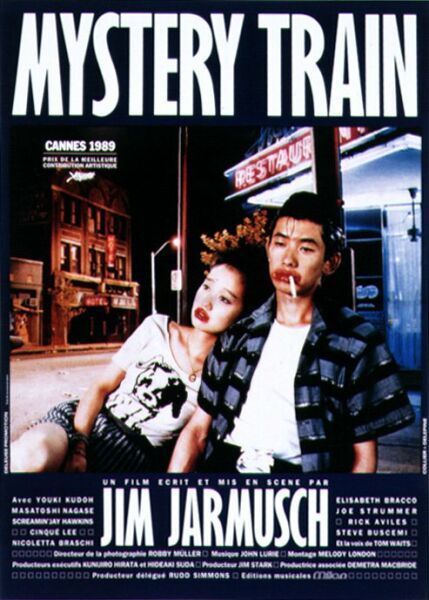
Guest blogger Brianosaurus returns with another wacky tale, this time set in Memphis.
Jim Jarmusch has been making indie movies since 1980. That’s at least 15 years before it was cool. In fact, ‘indie’ is the only kind of movie he makes. And he’s damn good at it.
His moody films have a melodramatic, meandering pace. The sets are usually broken-down bits of America inhabited by broken-down bits of people just passing through. We usually only get to see a glimpse of the character’s personalities. Their dialogue is that cracked conversation old friends have on long trips: Lots of looking out the window. Friendly silence. Most directors would run from such long, silent, nothings of a scene. Certainly most studios would! That’s were Jarmusch’s success is born. By working outside major studios for his entire career, he has developed a candor in his storytelling that is unique and yet intimately familiar to us all; it’s just the way we are.
Mystery Train is slightly less bleak than Jarmusch’s other efforts. Set in Memphis, Tennessee, this story follows the unrelated yet intertwined journey of three groups of people. Although these stories are slightly more sequential than, say, Pulp Fiction, you could take that film as a reference. All three of his stories center on an old, seedy hotel in the bad part of Memphis. Most of the story takes place late at night, when "normal" people are in their homes. It’s when the rest of the city, the seedy side, is awake.
The first act, Far From Yokohama, follows two young Japanese lovers on a quest to see Elvis’ home, Graceland, and Sun Studios, where many of the great blues legends made their first recordings.
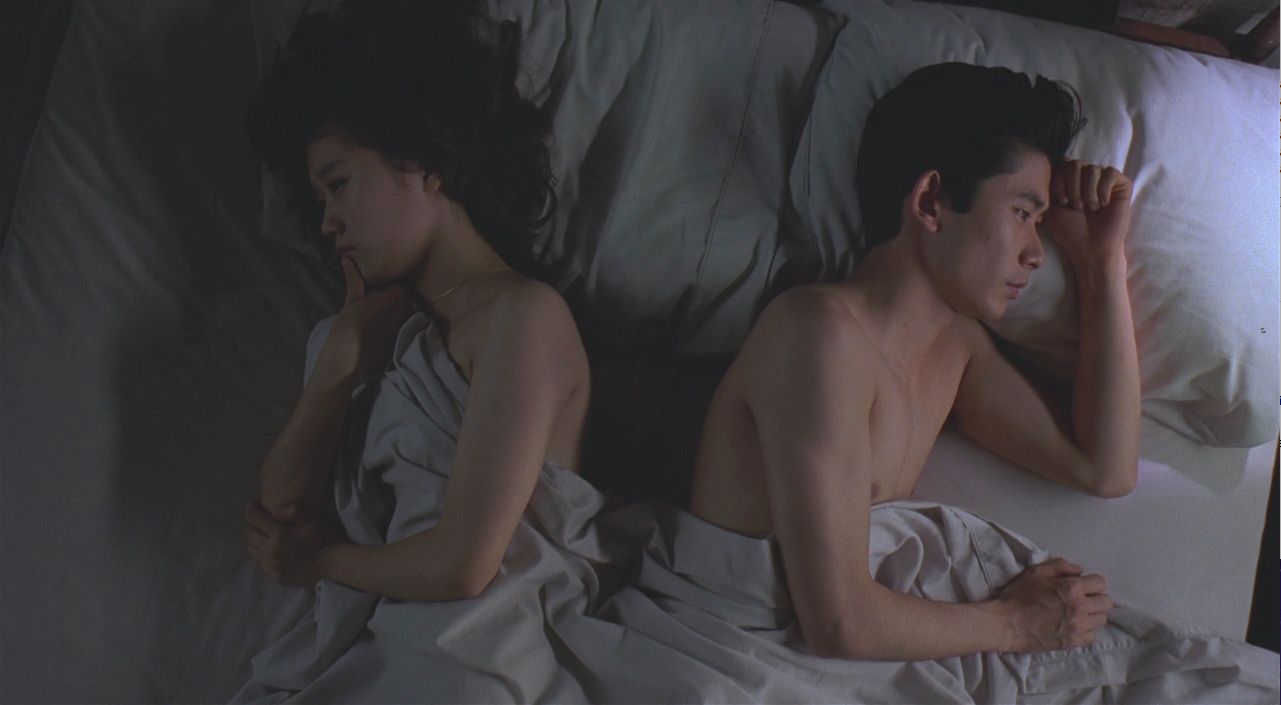
Endlessly happy Mitzuko and her boyfriend, the tiresome stoic, Jun.
Our Japanese travelers, Jun (Masatoshi Nagase) and Mitsuko (Youki Kudoh), can’t seem to agree on anything; what to see first (Sun Studios or Graceland), who’s the best musician (Carl Perkins or Elvis Presley), etc. Despite their differences, it’s Jarmusch’s direction that makes them feel so close to each other, and us so close to them. It’s in the way they walk, sharing the load of their suitcase, keeping step with each other perfectly. The way they work together in simple things like closing the suitcase. It’s in the things unsaid. These two are a pair, no doubt about it. After a quick tour of Sun Studios, they end up at Arcade Hotel, where the film is centered.
The second act, A Ghost, follows Luisa (the always pretty Nicoletta Braschi, Life is Beautiful) as she wanders the streets of Memphis trying to kill time before she catches her flight out of town the next day. Jarmusch gives us a brief introduction to Luisa, and it’s enough to propel her character’s innocent journey through the nighttime streets.
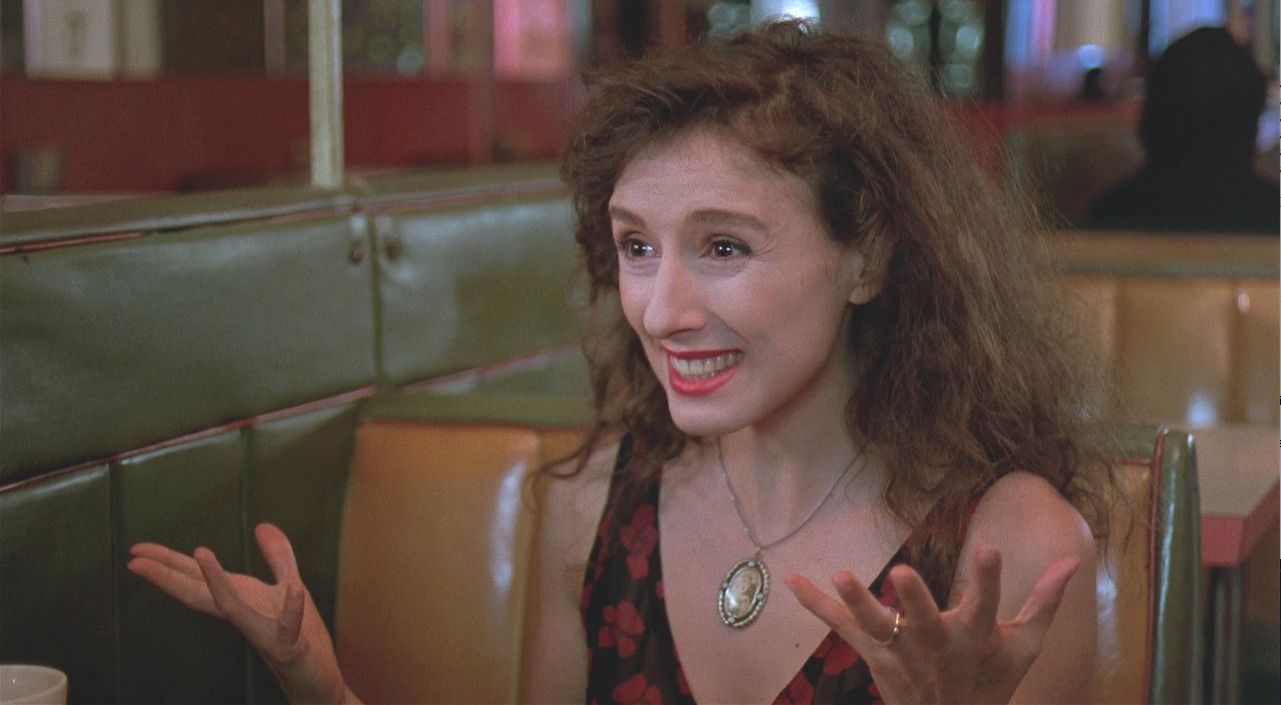
“Elvis Presley?”
Luisa also eventually winds up at Arcade Hotel. After bumping into Dee Dee (Elizabeth Bracco), another lone traveler, on her way to the hotel, she ends up sharing a room with her. It’s here in this room where she has the encounter that gives name to this act.
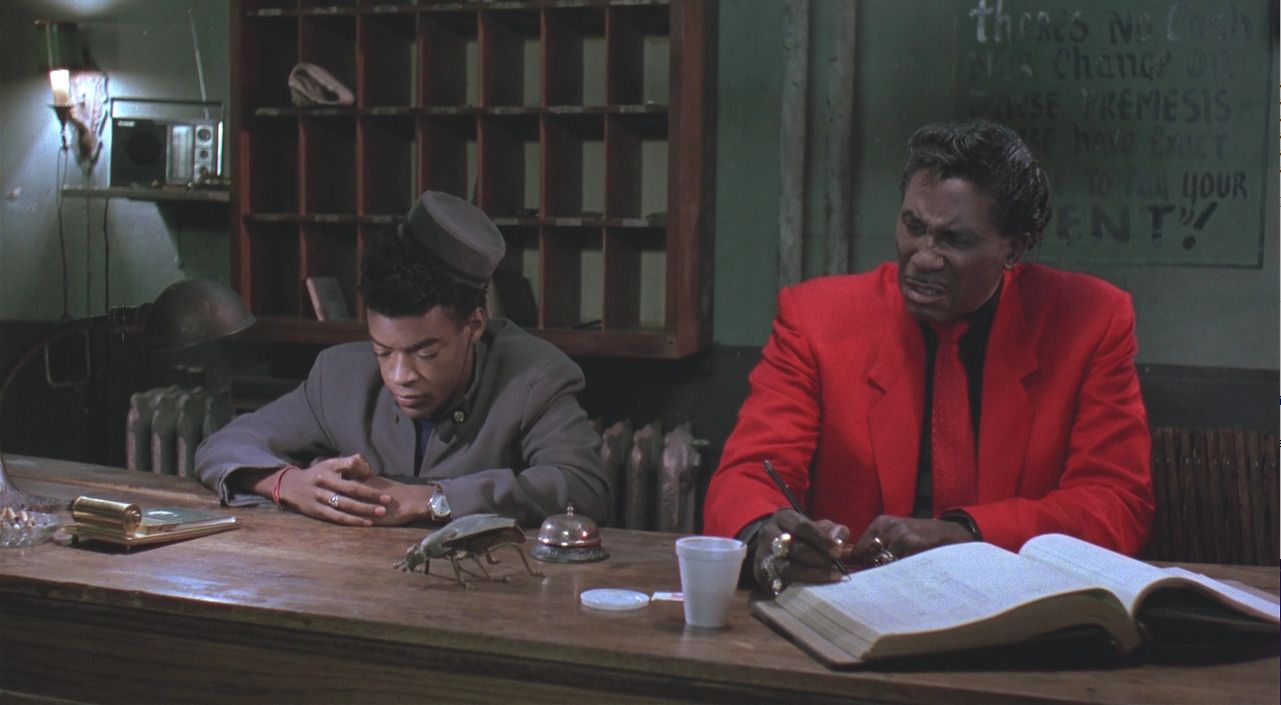
“Jiffy Squid?” Cinqué Lee and Screamin’ Jay Hawkins play Bellboy and Nightclerk of the Arcade Hotel.
The last act, Lost in Space, is by far the most melodramatic. It follows the night of three men, Johhny, Will Robinson and Charlie the Barber (Joe Strummer, Rick Aviles and Steve Buscemi respectively). Will and Charlie try to keep Johnny (nicknamed Elvis) under control after he loses his job and breaks up with his girlfriend, Dee Dee. They fail and Johnny needlessly shoots a liquor store clerk. The guys ride around town trying to figure out what to do before ending up at Arcade Hotel to lay low.
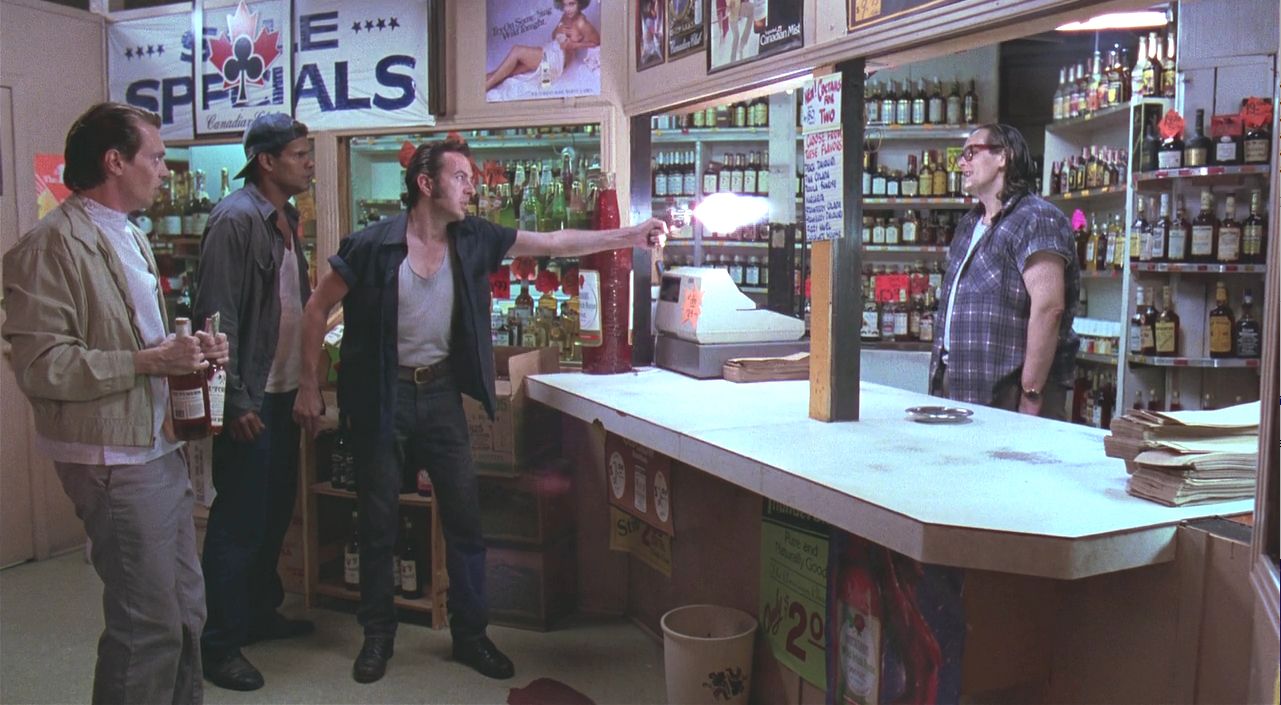
Danger Will Robinson!
Although each act is thematically different from the next, Jarmusch does an excellent job tying them all together with the Hotel Staff (Lee and Hawkins are fantastic) and with a synchronous DJ (Tom Waits) spinning late nights tracks heard throughout the film. Each story is its own thing; yet tied to the next just enough to carry us through. The middle act, A Ghost, carries slightly less weight than the other two, but gives a bit of whimsicality to an otherwise bleak film.
The music of Memphis is like another character in the film. Classic tracks are performed by Elvis, Junior Parker, Roy Orbison and Otis Redding. These men are the soul of Memphis and lend their story to Jarmusch’s. Original music composed by John Lurie (another Jarmusch veteran) is also very good.
Mystery Train fits nicely into Jim Jarmusch’s record of pleasantly melodramatic indie films. It’s a wonderful film and another intimate look at the lives of travelers and strangers as they cross paths on the streets of broken-down America. Recommended.
**If you want to know more about Jim Jarmusch, John Lurie and Tom Waits, I suggest you have a look at Fishing With John!


1 comment:
Landed on the blog by chance(via Chakra) enjoying my stay here! Great work.
Post a Comment